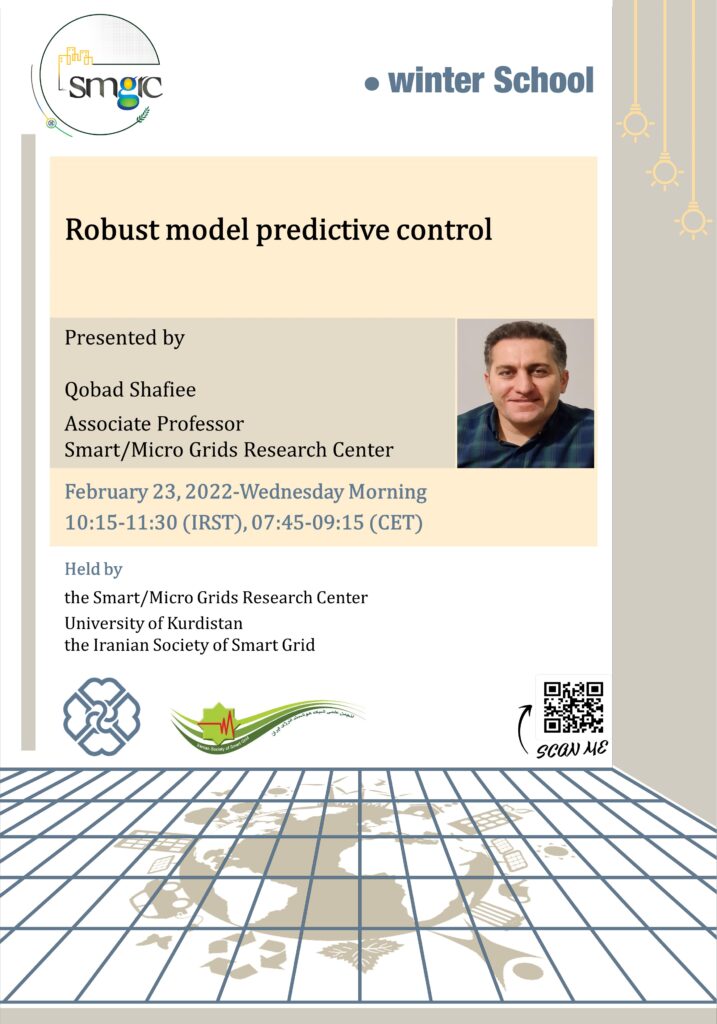
About the Presenter
Qobad Shafiee (S’13–M’15–SM’17) received a Ph.D. degree in Electrical Engineering from the Department of Energy Technology, Aalborg University (Denmark) in 2014. He is currently an Associate Professor, Director of International Affairs, and Co-Leader of the Smart/Micro Grids Research Center at the University of Kurdistan (Sanandaj, Iran), where he was a lecturer from 2007 to 2011. In 2014, he was a Visiting Scholar with the Electrical Engineering Department, the University of Texas at Arlington, Arlington, TX, USA. He was a Post-Doctoral Fellow with the Department of Energy Technology, Aalborg University in 2015. He is a Senior Member of IEEE, Associate Editor of IEEE Transactions on Power Electronics, and Guest Associate Editor of IEEE Transactions on Energy Conversion. His current research interests include dynamic modeling, design, control of power electronics-based systems and microgrids, and model predictive and optimal control of modern power systems.
General Information:
This course will be useful for …
The aims of this course are …
Where and how you can use this knowledge?
Model predictive control (MPC) is the class of advanced control techniques applied to ranging from the process industry to the automotive and power systems. MPC can deal with almost any time-varying process, multivariable systems with time-delays, constraints, and specifications, limited only by the availability of real-time computational power. MPC was developed in the process industries in the 1960s and ’70s, based primarily on heuristic ideas and input-output step and impulse response models. The basic principle is to solve an open-loop optimal control problem at each time step. The decision variables are a set of future manipulated variable moves and the objective function is to minimize deviations from the desired trajectory; constraints on manipulated, state, and output variables are naturally handled in this formulation. Feedback is handled by providing a model update at each time step and performing the optimization again. The main advantage of MPC is the fact that it allows the current timeslot to be optimized while keeping future timeslots in the account.
Linear MPC, Nonlinear MPC, Explicit MPC, Hybrid MPC, Stochastic MPC, and Robust MPC are some of the most well-known variants of model predictive control. Robust MPC is an improved form of MPC that is intrinsically robust in the face of uncertainty. The main purpose of robust MPC is to devise an optimization-based control synthesis method that accounts for the interactions of the uncertainty with the system, constraints, and performance criteria in a theoretically and computationally tractable way.
The primary objective of this lecture is to provide an introduction to the theory and application of model predictive control with a focus on robust MPC. For the sake of better understanding, the provided concept and theory will be supported by simple examples and simulations. The lecture will be useful for undergraduate and postgraduate students with a background and basic understanding of control systems.